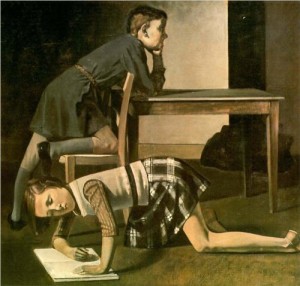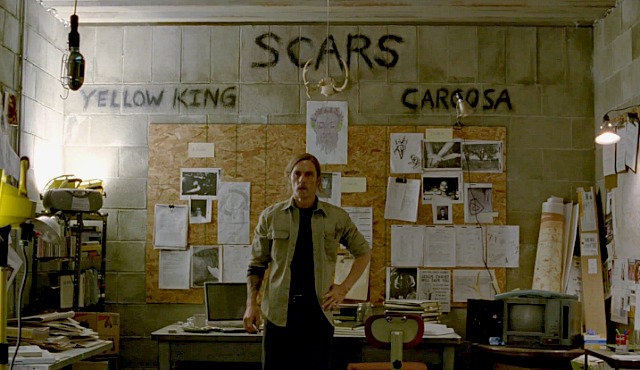 It had been an average prom as far as such things go – the police chief’s daughter showed up wasted, the would-be queen ran out in tears. The kids danced fast, the kids danced slow, third-generation stalwarts from The Starlight Ballroom. I spent the evening by a dry bar, a constant bridge between what is and what should never be. No one would’ve cared that I was 21, assuming I was charming, or chiseled, or my default vibe was anything beyond “fuck you”.
It had been an average prom as far as such things go – the police chief’s daughter showed up wasted, the would-be queen ran out in tears. The kids danced fast, the kids danced slow, third-generation stalwarts from The Starlight Ballroom. I spent the evening by a dry bar, a constant bridge between what is and what should never be. No one would’ve cared that I was 21, assuming I was charming, or chiseled, or my default vibe was anything beyond “fuck you”.
Either way, the prom was over now, and the after-prom was in full-swing. I stood alone inside a two-room suite, staring out across backyards. I should just go home, I reasoned. I live two fucking blocks from here.
My girlfriend had run downstairs for 15 minutes. That was a little over an hour ago.
I filled a book bag full of beer, headed downstairs to the commons. I leaned my weight against the guardrail, stealing glances from above. I moved from Tina Bada to Alanna, Steve Del Monte, Dave Del Conte … the entire class of 1995. All except for my young girlfriend, who had vanished like a sneak thief in the night.
“She’s probably waiting upstairs in your room,” one senior offered. “You should just go back and wait,” another added. I grew anxious, and then surly, then impetuous enough that my false dread gave way to anger. I doubled back up to our bedroom, down again into the commons.
The crowd was loose and thinning now; the conversation, drowsy. I sat alone along the stairwell, scanning Crescent Court from side to side. There was a door along the northeast wall, a strip of light amidst dark shadows. I wandered down across the lobby, put my ear up to the panel. I rapped the door with peaked knuckles, forced the issue till it opened.
I stood alone inside an archway, staring blankly at my girlfriend. We were three inside a room for two now, and three meant one person too many.
***
Jimmy. Meghan was holed up in that private room with Goddamn Fucking Jimmy. Gorgeous, blue-eyed, peach-fuzz Jimmy, with the flop-sweat blotches and the pristine hair. Jimmy, with the spit-shine smile and the stylish mole. Jimmy, the all-county athlete; Jimmy, the all-catholic boy. Jimmy, the coulda-been-shoulda-been-but-never-was best friend; the guy who Meghan held a torch for right up until she first met me.
Jimmy was the platinum standard, safe and secure, family-friendly to an embarrassing degree. Jimmy was the same age and same year as Meghan, honor roll, en route to college. Jimmy made Meghan laugh despite not being funny, and he shared Meghan’s assessment that a window in their lives was closing. Only Jimmy had a girlfriend, and Meghan had a boyfriend, and the entire thing felt awkward, like some subplot from Sweet Valley High.
All of which explains my sense of letdown upon entering that room. I’d witnessed nothing compromising … no fragrante delicto, so to speak. And yet, it was obvious I had wandered in on something, a pair of kindreds acting in accordance with some now-or-never principle, perhaps. In the end I could not say for sure, save for the fact the two of of them were sequestered … at 4 am … on prom night … for well over an hour … half-potted … having abandoned their respective dates.
The prevailing wisdom had it pegged that I was jealous, an outsider, the jilted boyfriend full of vitriol. There had been incidents – an entire litany of them – to support this argument. Over the course of two long years I had grown overbearing to an extent I regularly guilted Meghan into skipping routine outings with her friends. Excuses ranged from not wanting her to get arrested for drinking to flat-out shitting on her closest buddies. Every emotional response came plagued by insecurity – acute fear of losing Meghan to the next best thing that came along.
On the morning of Meghan’s sister’s funeral – way back in 1993 – I threw a fit upon discovering Jimmy would be arriving at the service before I did. It’s not his place, I stammered, it makes no fucking sense. Half-an-hour worth of pretzel logic, neatly wrapped inside some myth about the all-American boy in his all-American suit, masquerading as a surrogate for me – the mingy, doe-eyed dropout, wearing hand-me-downs from relatives.
By May of 1995, Meghan knew that she could do much better. Consequently, she had settled in as a lame duck, irretrievably committed to either riding matters out until September – at which point she’d be leaving for Immaculata – or accepting severance terms along the way. The last time we’d had sex was somewhere back in mid-December, an unmemorable event that came and went on Meghan’s kitchen floor. Ever since, mon cheri appeared repulsed by me, so much so that provocation proved no asset. Meghan no longer cared about the winning or losing. Meghan no longer cared about the anything at all.
***
Meghan’s graduation took place in the evening, during that auburn hour when the sunlight’s slowly fading like so much yolk into the bay. Twilight shadows fell at angles, stretching out like dueling lances. There were gowns, a glowing stream of gowns, Atlantic Avenue lit up in satin. I was wearing the same suit that I’d had on when Meghan’s sister died, and it reminded me of being with Meghan on that morning. Long-term, that incident had drawn the two of us much closer. Only now the weight had shifted, forcing stress upon the whole.
I walked home after the graduation, changed into denim jeans and a T-shirt. Meghan pulled up out front an hour later, motor running, car in park.
“I’m heading to a party,” Meghan told me.
“Oh, wow,” I said. “OK. Well, just let me grab some beer and the two of us can … ”
“You can’t,” Meghan commanded. “It’s seniors only. Not my call.”
Silence. The sound of asphalt under foot.
“How long have you known?” I wondered.
“How long have I known what?” Meghan asked.
“How long have you known about this party?”
“An hour,” Meghan responded. “Maybe two.”
“What about Orlando?” I said.
“What about Orlando?” Meghan soured.
“We’re supposed to be leaving for Orlando tomorrow morning,” I said.
“So what?” Meghan told me.
“So what?” I said, mockingly. “So now you’re gonna wind up totally hungover, and I’m gonna wind up doing all the driving.”
“I’ll be fine,” Meghan insisted. “Maybe you should worry about yourself instead.”
“What the fuck is that supposed to mean?” I asked.
“Look, I gotta go,” Meghan said. “I’ll be back to pick you up tomorrow morning.”
“What time?” I said.
“Eleven.”
“Eleven?” I chortled. “I thought we were supposed to be leaving around eight?”
“OK,” Meghan conceded. “How ’bout 12?”
She flicked her cigarette out the window, leaned her elbow on the seal.
“Are we done yet?” Meghan asked.
“Will Jimmy be there?” I said.
“I don’t know, Bob,” Meghan told me.
“Oh, I’m pretty sure you do.”
Meghan tapped one finger on the mirror, exhaled a mouthful through her nose.
“Can I trust you?” I asked.
“What type of question is that?” Meghan responded.
“Can I trust you?” I repeated.
“Yes, Bob, you can trust me,” Meghan whispered. “Can I go now?”
“Promise me you won’t do anything stupid tonight,” I bargained. “Anything that might put our relationship at risk.”
“We’ve been together for two years,” Meghan berated. “How could you even propose something like that?”
“If it’s really such a given then it shouldn’t be an issue.”
“I’m not promising you anything,” Meghan said.
“You what?” I responded.
“I’m not promising you anything,” Meghan repeated. “For once in my life, I’m gonna go out and I’m gonna have a decent time and I’m not gonna end up feeling sorry for myself because of you.”
“This is fucked,” I pouted. “This is absolutely fucked. That’s what this is.”
“Yeah, well, you’ve got that right,” Meghan told me. She craned her head out through the window, leaned in to kiss me on the cheek. “I’ll see you in the morning,” she offered.
Meghan swung the gearshift, headed east toward the shore. I could hear the pistons churning, gaining strength into the turn.
Day 801
(Moving On is a regular feature on IFB.)
©Copyright Bob Hill




